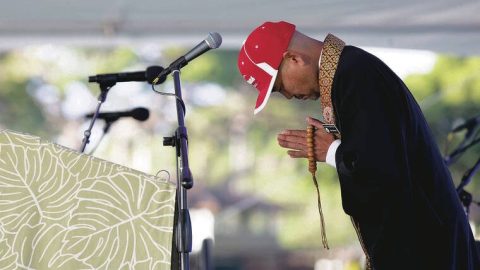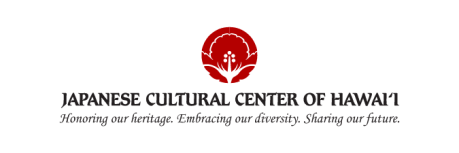Funding Cuts and Their Impact on Preserving Japanese American Stories in Lahaina
by Nate Gyotoku, President & Executive Director
The Japanese Cultural Center of Hawaiʻi (JCCH) expresses deep concern over the recent funding cuts by the Trump Administration and the Department of Government Efficiency (DOGE) to the National Endowment for the Humanities (NEH). These cuts have severely hindered our ability to preserve the stories and cultural heritage of Hawaiʻi’s Japanese American community.
The funding cuts have completely halted this vital project. We are unable to proceed and cannot secure reimbursement for funds already expended. Furthermore, we anticipate additional funding reductions or lost opportunities under this administration.
A Legacy Worth Preserving
For over 35 years, the JCCH has been committed to documenting the experiences of Japanese Americans in Hawaiʻi through oral histories. These narratives capture both daily life and significant historical events, reflecting over 150 years of Japanese presence in the islands. The devastating wildfires in Lahaina recently destroyed three historic Buddhist temples—Lahaina Jodo Mission, Lahaina Hongwanji Mission, and Lahaina Shingon Mission—each integral to the community’s spiritual and cultural identity. These temples served not only as places of worship but also as schools, gathering spaces, and cultural hubs for generations of Japanese immigrants.

Project Goals
Our initiative was designed with two key objectives:
- Documenting Congregation Stories: The JCCH planned to collect oral histories from temple members to preserve their voices and memories. These accounts were intended to highlight the historical significance of the temples and their contributions to the community over decades.
- Community Dialogue: The project was scheduled to foster discussions about the future of Buddhism in Lahaina as these temples considered rebuilding. This dialogue was meant to address challenges such as declining congregations and shifting demographics while exploring opportunities for growth.
Innovative Approaches to Preservation
Recognizing the growing importance of video as a storytelling medium, the JCCH was transitioning its oral history program from audio recordings to video interviews. This approach was intended to capture not only words but also facial expressions, gestures, and emotions, creating a richer preservation of narratives. In collaboration with the University of Hawaiʻi Oral History Program, the JCCH was enhancing its expertise in video production and editing.
The resulting video interviews were going to be widely shared through the JCCH’s YouTube channel (@jcchawaii) and Instagram (@jcchawaii), ensuring accessibility to local, national, and international audiences. This modernized approach was meant to enrich the JCCH’s archival collections and engage younger generations in celebrating Japanese culture.
Expert Guidance and Community Engagement
The project was benefiting from the expertise of Dr. George Tanabe and Dr. Willa Tanabe, renowned scholars in religious studies and Japanese culture. They were scheduled to assist with drafting interview questions, facilitating community panels, and providing insights into Buddhist traditions. Additionally, JCCH President & Executive Director Nate Gyotoku was planning to host a virtual public panel discussion featuring these experts alongside community leaders. Topics were going to include evolving demographics, globalization’s impact on religious practices, and strategies for engaging younger generations.
Looking Ahead
This initiative represents a pivotal moment for the Japanese American community in Lahaina as it navigates contemporary challenges while preserving its rich traditions. By combining oral histories with community dialogue and innovative video storytelling, the JCCH was poised to pave the way for a resilient future of Lahaina rooted in cultural heritage.
The Impact of Funding Cuts
The funding cuts by the Trump Administration and DOGE have significantly diminished efforts to preserve local Hawaiʻi and Japanese American stories. These reductions threaten our ability to document and share our communities’ rich cultural heritage. It is now more critical than ever to seek alternative funding sources and support.
We urge our community members and supporters to stand with us in advocating for the preservation of our shared history. Please contact your Senators, Congressmen, and other politicians to urge action against these funding cuts. If you would like to support the JCCH in completing this project, please contact Nate Gyotoku at [email protected].
Meanwhile, the JCCH will continue to transition our Oral History program to video usage overall, moving the program into a modern direction. We will continue story capture and sharing. Mahalo for your continued support.
